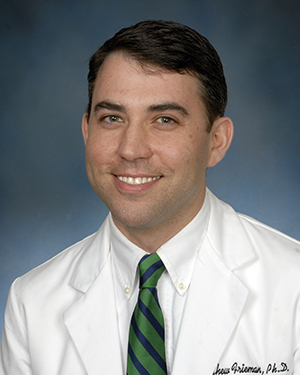Featured Experts
Matthew Frieman, PhD

Matthew Frieman, an associate professor of microbiology and immunology at the University of Maryland School of Medicine, has an overall research goal of creating therapeutic interventions for viruses of public health concern by developing a detailed understanding of how the viruses interact with the host.
His research has focused on the recently emerged and highly pathogenic coronaviruses: Severe Acute Respiratory Syndrome Coronavirus (SARS-CoV) and the Middle East Respiratory Syndrome Coronavirus (MERS-CoV). Both viruses cause severe lung disease and are highly lethal yet there are no FDA-approved therapeutics that target them.
Important to understanding these diseases has been the development, characterization, and utilization of mouse models of disease for both SARS-CoV and MERS-CoV. The rapid and successful development of these models has allowed him and his colleagues to unravel the cellular and physiological basis for disease of these viruses. In addition, the creation of these models has allowed for therapeutic development of vaccines, antibodies, small molecules, novel and repurposed drugs, and other therapeutics. Critical to his research is the synergy of in vitro and in vivo models of disease that allow us deep understandings of how these viruses work.
New recent work also focuses on influenza virus, norovirus and rotavirus via in vitro yeast experiments. This new model uses yeast genetics platforms that Frieman used during his graduate school training synergizing with his current interest in viruses. Together he uses yeast screens for functional genetic screens and high throughput drug screens to identify anti-viral interaction networks. He then models these networks in mammalian cells to identify proteins and pathways that effect virus replication as well as drugs that inhibit these same pathways, that are then tested using in vivo models of these pathogens. Combining in vitro and in vivo systems identifies key proteins and nodes of regulation for further therapeutic targeting.
